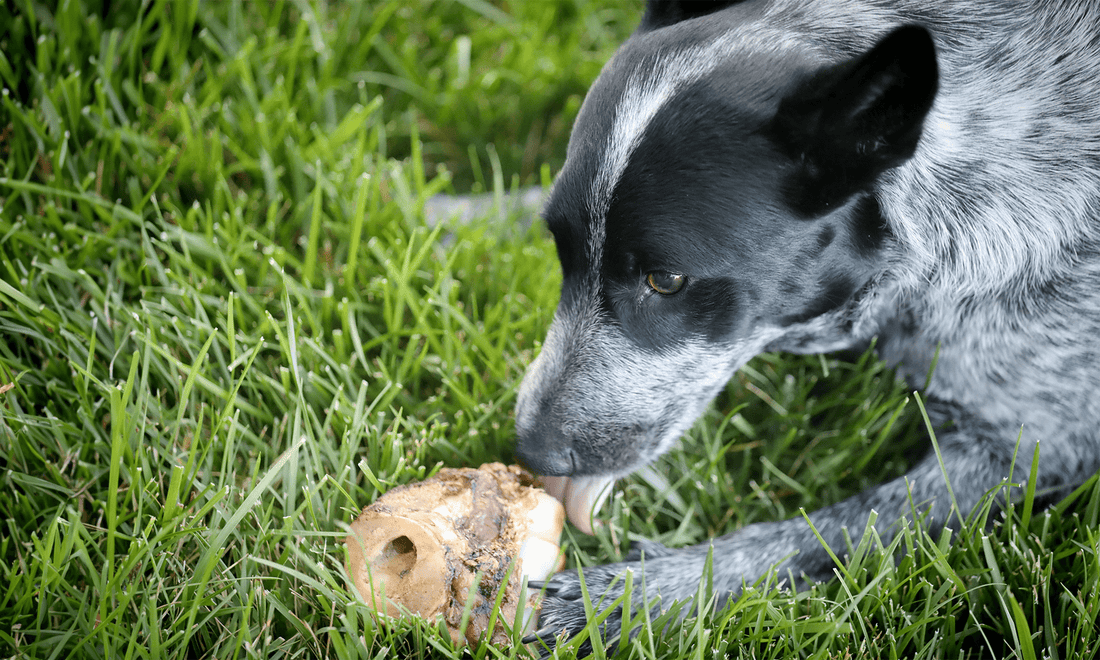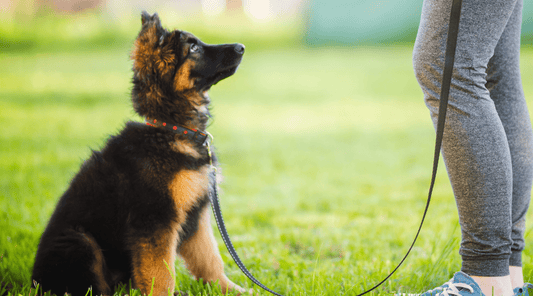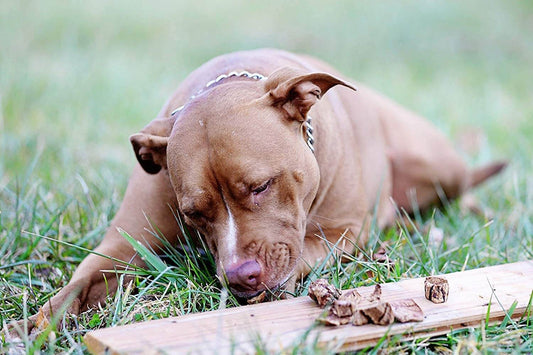
Best Animal Bones for Dogs
Dawn Miller Nov 02, 20245 Minute ReadThe other day, I was browsing the meat section at the local grocery. And as usual, I was thinking about how much my dogs love their meaty dog bones. It had me wondering: what animal bones can dogs eat?
What are the best animal bones for dogs? Are all marrow bones for dogs okay, regardless of the animal? Are there any they should steer clear of and why?
Here's what I found out.
Can Dogs Eat Bones?
Yes, dogs can eat bones when they come from animals that have bones that meet two basic criteria. They are tough enough to stand up to aggressive chewing. And they are prepared correctly to make bones safe.
In fact, dog bones can be an important part of a healthy diet and lifestyle for a dog. They provide a lot of nutrition, like collagen, glucosamine, and omega-3. These are not as available in kibble, even the nutritionally complete stuff.
Dog bones are also important for mental stimulation and can fix destructive chewing. Dogs often act out when they feel bored or anxious, so giving them a bone is a great way to fix all that in a healthy, dog-mom-approved way with positive reinforcement and an appropriate outlet for gnawing instinct.
Dog bones are also natural toothbrushes for pups. K9s scrape their teeth and massage their gums as they chew. This very natural instinct keeps their mouths cleaner and breath fresher. In fact, one study showed that dogs who chew bones regularly have 60-80% less harmful bacteria in their mouths.
My terrier Pixie had the worst breath when we adopted her several years back. But after a couple of months of regular chew time, I can stand to snuggle with her for popcorn and a movie.
With that said, it's important to follow basic safety precautions. I outline dog bone safety tips here.
What Animal Bones Can Dogs Eat?
Dogs can eat bones from a variety of animals as long as they're raw or those bones are prepared correctly. These include:
- Goat
- Sheep
- Cow / Bull (preferably beef cattle because they have stronger bones)
- Deer
- Ox
Each of these animals produces sufficiently dense bones, and they have bones large enough for most dogs, although bone size varies.
What Animal Bones Can Dogs NOT Eat?
Dogs should generally stay away from these, and I list why:
- Chicken/Turkey Bones - They're too soft and can splinter. They're not only a choking hazard. They can actually cause internal bleeding with sharp edges.
- Hambone - They're not dense enough to shatter, and they're too fatty, which can irritate the pancreas.
- Pork Rib Bones - Again, too fatty, and if they've been cooked, they're also shatter-prone
- Fish Bones - While cats may take their time to eat around or chew up fishbones, a dog may try to swallow those prickly things whole, so this is best avoided.
- Any Cooked Dinner Bones - Let's say you had a T-bone for dinner and have a little bone left. Your pup is looking at you with those puppy dog eyes. Should you give your dog a piece of bone? Nope. Any bone that has been cooked enough to make the food safe to eat is too done and can shatter.
- Used Bone Broth Bones - Again, they've been cooked for too long.
- Rawhide Bones - These aren't real bones, but they're shaped like them, so I think it's important to mention that these things are hiding a big secret. Here's why I never give my dogs rawhide.
I'll also mention raw beef bones. Now, this one is a personal preference. But I prefer not to give dogs raw bones. The American Veterinary Medical Association agrees with me on this. It's not worth the risks, especially with older dogs or puppies who may have compromised immune systems.
And it goes without saying any unnatural bones should be out. That includes ones made of plastic, rubber, wood pulp, or lots of additives, preservatives, and added sugar.
The Best Animal Bones are Grass Fed, Beef Marrow Bones
Of the many choices, here's why I say beef bones are best.
I can get beef bones sourced from USA-based ranches to support local jobs and know where my dogs' food comes from. These cattle are humanely raised in pasture, eating grass as nature intended.
Grass-fed beef bones are rich in nutrients and flavor. The marrow provides essential vitamins and minerals like calcium, iron, and collagen, which support joint health.
Bone size is important regardless of the animal they come from, so here's a breakdown by size.
The Best Animal Bones for Small Dogs
From those itty bitty dogs that you can fit in the palm of your hand to the little companion that just big enough to keep your feet warm at night, I like K9 Delights. they're so much meaty nutrition in the littlest package. you can even give these to puppies up to 15lb.
The Best Animal Bones for Medium Dogs
For mid-sized dogs like my terrier Pixie, Hickory-smoked knuckles are a great choice. They have lots of teeth-cleaning crevices and rich marrow for Pixie to figure out how to get out.
See meaty knuckle bones for mid-sized dogs here.
The Best Animal Bones for Large Dogs
For my oversized lab mix, Bruno, I get the Meaty Mammoth Marrow-Filled Champ Bones.
They’re nutritious, long-lasting, and can be stuffed with your dog's favorite treat once the marrow is gone. You can see some of my favorite recipes, plus tips and tricks, in this free downloadable dog bone refill guide.
The Best Bones for Aggressive Chewers
Any size dog can be an aggressive chewer. And the good news is all of the marrow bones I mentioned can stand up to those powerful jaws whether they're on a ferocious chihuahua or a spunky American bulldog.
But since we're on the topic of destructive chewers, I'll mention the Dynamo bone. It's perfect for mid-sized dogs and smaller large dogs. And it's one of my favorite dog bones to try out new dog bone recipes on. You can see the colossal Dynamo here.
The Best Bones for Sensitive Stomachs
If you have a dog with a particularly sensitive tummy, you should give beef trachea a try. These are rich in glucosamine, chondroitin, and collagen—all important building blocks of a strong stomach and intestinal lining. These are also great for bone and joint support for senior dogs. They're also a little lower in fat and easier to chew, which may help some more sensitive pups access these powerhouses of nutritiousness.
Bottom Line on the Best Chew Bones for Dogs
When you choose the right natural dog bone, you’re giving your pup a treat that keeps them engaged, promotes dental health, and delivers essential nutrients. It's also a safe and satisfying way to feed their natural instinct to chew while fixing undesirable chewing behaviors.
So, the next time you're on Amazon, grab one of these top bones and watch your dog’s tail wag with excitement!
Available On:





